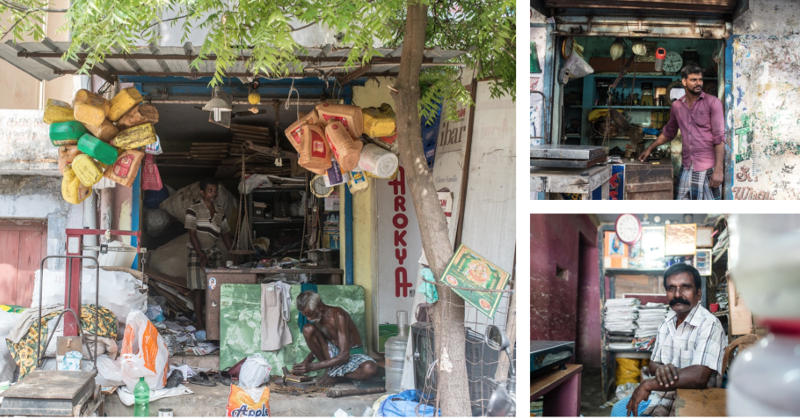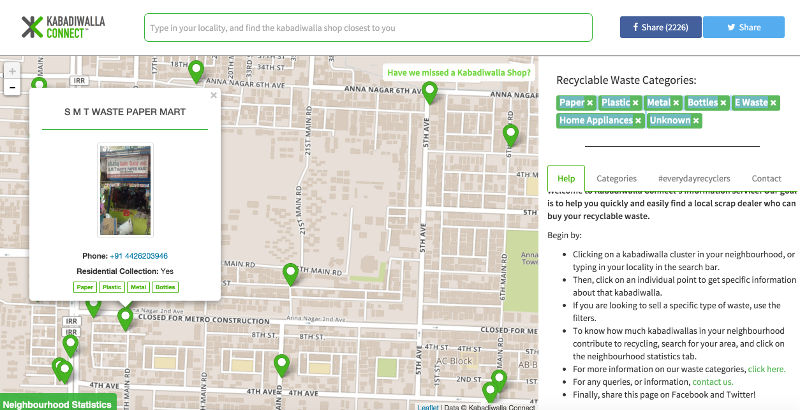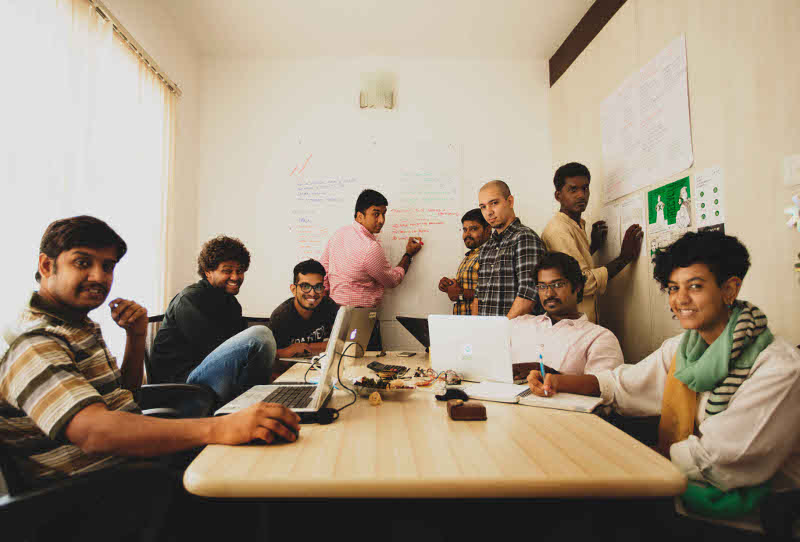
A research report on solid waste management in India conducted by Columbia University in 2012 found that more than 91 percent of the municipal solid waste collected in India is dumped in open landfills. According to the report, 10 percent of the country’s waste is disposed through garbage fires, and a prominent example of this was witnessed by Mumbai city in late January when the Deonar dumping ground caught fire and engulfed the city in noxious smog that could be seen from space.
That the waste management scenario in India isn’t even worse is because of the efforts of informal waste recyclers, the kabadiwallas – who handle a huge chunk of the waste we generate. Thesekabadiwallahs handle around 33 percent of all recyclable waste generated in Chennai city, according to research by Kabadiwalla Connect, a Chennai-based startup that’s working on an online listing platform that can connect citizens to kabadiwallahs. The startup won a climate change grant from the World Economic Forum, and has released a map-based UI, on which it marks various waste collection vendors along with their photos, contact details, and materials they recycle in Chennai. Users can look at this and find the nearest kabadiwallah who can come visit their houses and pick up waste for recycling.
 Siddharth Hande, Co-Founder and Head of Research at Kabadiwalla Connect gave us an overview of informal waste recycling ecosystem, based on mapping and surveying 800 recyclers in the city. Based on their research, they found that over 70 percent of kabadiwallahs earn less than Rs. 30,000 a month, and on average, have 14 years of experience in the business. At the same time, 90 percent of them own a smartphone, Hande told Gadgets 360.
Siddharth Hande, Co-Founder and Head of Research at Kabadiwalla Connect gave us an overview of informal waste recycling ecosystem, based on mapping and surveying 800 recyclers in the city. Based on their research, they found that over 70 percent of kabadiwallahs earn less than Rs. 30,000 a month, and on average, have 14 years of experience in the business. At the same time, 90 percent of them own a smartphone, Hande told Gadgets 360.
The startup is thus piloting a mobile phone based app that kabadiwallahs can use to report when they have recyclable waste to sell. By aggregating this inventory (that is to say, the recyclable materials that the kabadiwallahs collect), the startup intends to act as a buying club, to help them get better prices by selling it higher up the value chain.
“We’ve raised a small angel round, about $100,000 (roughly Rs. 67 lakhs), and we’re using this to build our MVP (minimum viable product),” says Hande. “We’ve hired a godown, and are now pilotingkabadiwallahs using the app, who are reporting to us, and we’re organising collection based on their data, sending it to the godown, segregating, shredding, and selling to a processor.”
We’ve seen a few startups address the recycling market with B2C business models – Bengaluru-basedEncashea, and Delhi-based Pom Pom both offer apps that can be used to schedule pickups of scrap from home. Other notable attempts in this space include Bengaluru-based IT company Mindtree’s I Got Garbage, which has made attempts to organise rag pickers as recycling managers. Karma Recycling, founded in 2013 provides an online e-waste recycling and refurbishing service, and claims to have purchased over 2,50,000 devices on its website. Companies like Reglobe and Reboot sell refurbished consumer electronics in the country.
Kabadiwalla Connect has eight full-time staff, apart from the founding team of three which includes Hande, Sonaal Bangera, and Rishi Sridhar, who have taken the roles of product and design, business and strategy respectively. “Two guys are tech, four are community facing, getting people to use the app, converting kabadiwalahs, managing the godown. One person is a designer,” Hande says.
 Kabadiwalla Connect sees enough profits in the value chain to create a high growth business in terms of gross profit and revenue in the market. “Investors are waiting waiting for us to do an MVP, which will launch by April 4th. We’ve already enrolled 20 kabadiwallahs, we’ve hired the godowns, we’ve brought shredding machines,” he says.
Kabadiwalla Connect sees enough profits in the value chain to create a high growth business in terms of gross profit and revenue in the market. “Investors are waiting waiting for us to do an MVP, which will launch by April 4th. We’ve already enrolled 20 kabadiwallahs, we’ve hired the godowns, we’ve brought shredding machines,” he says.
The startup is looking for a fundraise to map Chennai completely, and later extend its service to other cities, and expand its commercial component, where it connects kabadiwallas to processors. “We [recently] met one investor from Saudi Arabia who is very interested in bringing this to the MENA (Middle East and North Africa) region, so we’re kind of pursuing that to see whether there’s any potential to go there as well, because the technology we’ve built is scalable,” Hande says.
For consumers, the startup is working on a map-based listing service to help users quickly and easily find a local scrap dealer who can buy recyclable waste. The platform has gone through three iterations, and is now being repurposed into a mobile app, where they can use GPS to provide the a list of waste recyclers around a user at a neighbourhood level, based on what materials the user wants to recycle such as paper, plastic, metal, bottles, e-waste, and home appliances. The startup plans to have it all ready and working by April 4. To encourage adoption of its app from kabadiwallahs, it plans to provide them small incentives, like mobile top-ups.
“There are already these established supply chains, we’re just tapping into that in some way. We just hired a supervisor, who has been in the industry for the last 20 years,” says Hande. “He knows the system, how to use the machines, how to segregate. It’s quite established. The oldest kabadiwallas have been here for 65 years, the average kabadiwalla has been here for 15 years.”
The startup is also working on two brands for the consumer market under its brand Upcykle. “One is a simple set of segregation bins that we’re going to sell to the consumer to actually help them sort out their waste. We’re also prototyping easy composting bins for households,” Hande says. “We’re also trying to explore to see if we can build technology that can make a simple hand shredder, that we can sell to kabadiwallas, who can shred in their godowns. They can then store a lot more plastic, and get better prices as well. For us, there’s a lot less work to do on the processing front,” he adds.
Download the Gadgets 360 app for Android and iOS to stay up to date with the latest tech news, product reviews, and exclusive deals on the popular mobiles.
| M | T | W | T | F | S | S |
|---|---|---|---|---|---|---|
| 1 | 2 | 3 | 4 | 5 | 6 | 7 |
| 8 | 9 | 10 | 11 | 12 | 13 | 14 |
| 15 | 16 | 17 | 18 | 19 | 20 | 21 |
| 22 | 23 | 24 | 25 | 26 | 27 | 28 |
| 29 | 30 | |||||
























